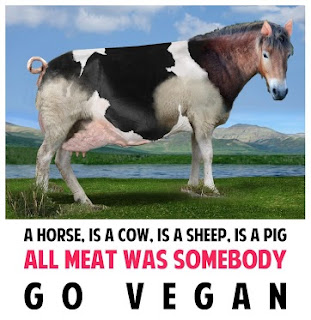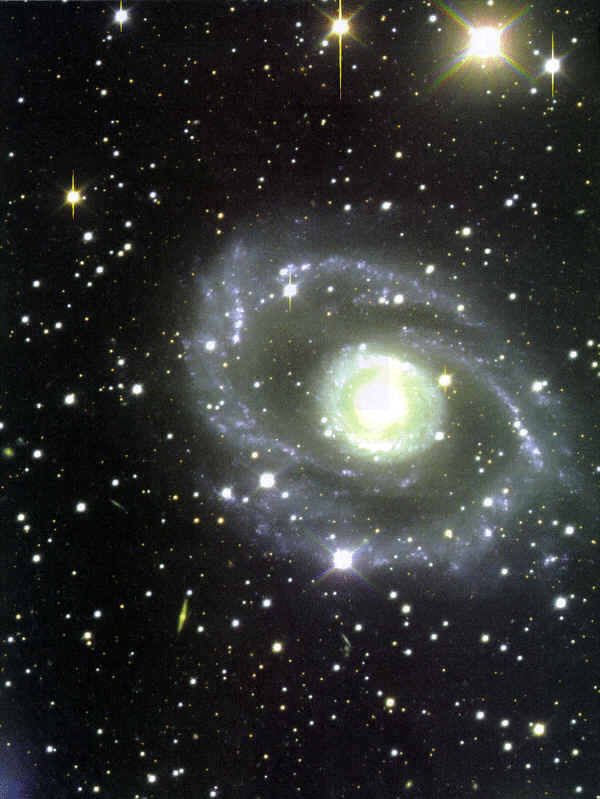can i come out of hiding? is the 'fleshtival' over?
can i walk into a supermarket without my eyes being drawn to the tinselled, highly lit dismembered bodies of sentient beings murdered for human consumption? can i turn on the television without being assailed by the horrendous imagery of body parts of beings i consider someone, not a food ingredient? unfortunately this happens all year, but the bombardment of butchery increases dramatically at this time when religion and commercialism get together with 'celebration'...
 |
| i hope edgar's mission don't mind my use of their banner! |
i had this week off work, not for the celebratory time some see it as - i'm not religious so don't subscribe to the fairytale fable - but because i couldn’t, didn't want to, deal with the inevitable and often distressingly (disturbingly!, alarmingly!) descriptive conversations about 'festive food' - who people would be eating and how they would be serving them...
 |
| from evolve campaigns |
while many sat down on 25 december to 'family feasts' of necrovore gluttony in the form of putrid, decaying flesh and body fats (yes, if you hadn’t thought about it, the moment someone dies they start to decompose no matter how you ‘dress them up’) - i sat down and decided it was time to watch speciesism, the movie…
not sure what speciesism is? a huffington post article '"speciesism : the movie" may change your world view' states “The word "speciesism," which has been popularized by Princeton bioethicist Peter Singer, refers to the assumption that a vast gulf exists between the ethical value of human interests and the ethical value of the interests of other animals. At its extreme, we may see ourselves as the only species that matters morally, and view other animals as existing merely for our use: to eat, to make into clothing, to perform experiments on, to be entertained by in circuses and zoos. Like those who grew up having overt racist beliefs assimilated into their worldview, some degree of speciesism has been so well-assimilated into the worldview of most of us that it does not even appear to be worth questioning.” ... in other words, subscribing to the human superiority myth...
i was definitely in for some mental stimulation watching this film…
this is the first film by mark devries and, according to an article on the free from harm website 'could mark devries' first film change the world' “Before making his maiden movie, 25-year-old George Washington University law student Mark Devries was, well, a speciesist. He believed, as most of us do, that the arguments for animal rights and against speciesism were absurd and easily dismissable. But in the course of his interviews with the world’s leading philosophers on the subject — Peter Singer, Gary Francione, Tom Regan, evolutionary biologists Richard Dawkins and Marc Bekoff — he had a complete shift in consciousness and became a vegan. He claims that their arguments make an irrefutable case for animal rights, and he’s equally moved by the absence of valid counter arguments."
it doesn’t contain the full-on, in-your-face confronting imagery of ‘earthlings’ or ‘meat the truth’, but it questions the processes and secrecy surrounding big agricultural facilities, it exposes the environmental damage and searches for answers - it is definitely thought-provoking and no less confronting morally and ethically… it's another important expose of the continuing holocaust of those we brutalise and enslave by the billions year in and year out – they are someone, not something…
“The word "holocaust" is defined as "destruction or slaughter on a mass scale." In modern times, the word is applied most often to the plight of European Jews at the hands of Hitler, but the word was not invented for this event. There have been many holocausts before and after, many on a larger scale. Even so, to compare the slaughter of non-human animals to the slaughter of humans is not to degrade the deaths of humans but to dignify the deaths of non humans.”... dan piraro
the two articles mentioned above speak volumes on this movie and are both worth reading, and i would highly recommend watching the movie if you can get your hands on a copy (i bought mine online here and will be donating it to my local library)...
have i mentioned i hate this time of year? sadly there's another form of necrovore delight prevalent on these lovely summer evenings - the barbecue - unfortunately evenings are often tainted with the smell of burning flesh from yet more victims of speciesism - you know that invasive, pervasive odor that can't be 'locked out' - there is no escape...yes, there are definitely moments when i hate this time of year...
for anyone who has read down to here, and is interested in the etymology of words, holocaust has actually been around since the 13th century... you can read more at the online etymology dictionary...
have i mentioned i hate this time of year? sadly there's another form of necrovore delight prevalent on these lovely summer evenings - the barbecue - unfortunately evenings are often tainted with the smell of burning flesh from yet more victims of speciesism - you know that invasive, pervasive odor that can't be 'locked out' - there is no escape...yes, there are definitely moments when i hate this time of year...
for anyone who has read down to here, and is interested in the etymology of words, holocaust has actually been around since the 13th century... you can read more at the online etymology dictionary...








